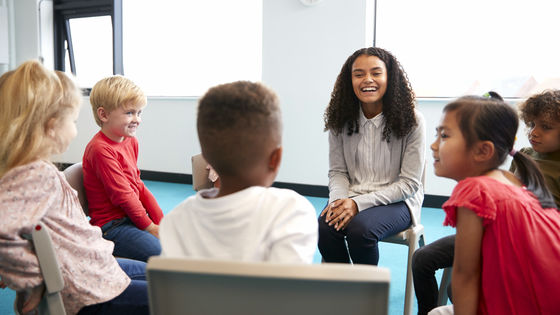What is the effect of learning 'critical thinking' for children?

By
Peter Ellerton, who teaches critical thinking at the University of Queensland, to see what effects can be obtained by performing critical analysis in school education that performs appropriate analysis on problems and derives optimal solutions. Mr. talks.
Thinking about thinking helps kids learn.How can we teach critical thinking?
https://theconversation.com/thinking-about-thinking-helps-kids-learn-how-can-we-teach-critical-thinking-129795
A survey conducted in the United States in 2013 found that about 93% of employers stated that the criteria for recruiting students were 'not the major subject, but the individual's critical thinking, communication skills, and ability to solve complex problems. The important thing 'became clear.
The emphasis on critical thinking among the three abilities is also common in education, says Ellerton. In the United States, critical thinking is emphasized through a common state standard . In Australia, critical and creative thinking is recognized as a 'common ability'.

By
Critical thinking is often interpreted in the sense that 'you can recognize the problem and find a solution,' but Erlangton says, 'It's not a critical idea by itself.'
According to Ellerton, critical thinking isn't the intelligence metric measured by IQ tests. Intelligence quotients are expected to improve over the years due to the search for novelty and creative thinking, and studies have shown that school education has a small effect on intelligence quotients. Critical thinking can be greatly improved in a shorter period of time than intelligence, through education, says Ellerton.

By
'In the first place, critical thinking is not just about' difficult thinking '. Critical thinking is about the' quality of thinking ', not the difficulty of the problem.'
Critical thinking refers to the ability to objectively evaluate one's thinking based on the right reasoning. Critical thinking is based on the so-called ' Values of Inquiry ', such as accuracy, clarity, broadness, consistency, and relevance.
Critical thinking not only evaluates the conclusions, but also looks at the process of what led to the conclusions. Rather than just judge 'whether the assertion is correct', we understand 'how the discussion has proceeded' and judge whether the conclusion is logically supported by reliable data. The ability to evaluate and improve one's thinking by recognizing the process of thinking is required for critical thinking.

By
Many approaches to developing critical thinking are based on the ' Philosophy for Children ' educational movement, which aims to teach children inference and discussion skills. Ellerton's 'Philosophy for Children' refers to a program that focuses on thinking skills and teaches how to discuss.
At a school in Brisbane, Australia, the task of deciding the greatest athlete in Australia was devised to teach critical thinking.
Students first create their own criteria for greatness. In order to set standards, we need to analyze the Australian sports situation and create reliable evaluation standards. You will then explain why your criteria are appropriate and apply them to Australian athletes for evaluation.
In addition, each claim will be discussed with other students to improve the reliability of the evaluation criteria. Develop critical thinking skills by capturing key aspects of Australian sports and discussing well-documented, widely applicable standards.

By monkeybusiness
Ellerton listed the following six learning and evaluation items that promote critical thinking:
・ Verify the issues.
-Summarize the problems.
・ Creatively ask questions about problems.
・ Conduct, analyze, and evaluate.
・ Apply “Values of Inquiry”.
・ Develop a wide range of cognitive skills, including analysis, explanation, justification, and evaluation.
Ellerton recommends visualizing the arguments to visualize how the arguments and inferences were made, from assumptions to conclusions.

By monkeybusiness
A study focused on 'philosophy for children' shows that students who take weekly classes on reasoning and discussion for one year have improved their performance over the next few years compared to their peers, Also improved. Another study in, that consciously implement the inference in everyday life, by the guidance of a targeted, have been shown to be able to significantly improve the ability of critical thinking.
'In order to acquire the skills to live in the 21st century, it is important to teach many people critical thinking, such as by providing a place for lifelong learning,' said Ellerton.
Related Posts:
in Note, Posted by darkhorse_log







